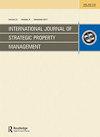良好治理下的土壤环境质量卡诺模型评估框架:银行独立性原则和企业道德行为准则问责制
IF 1.7
4区 管理学
Q3 MANAGEMENT
引用次数: 0
摘要
目的:银行交易基本上是在传统的产品和服务协议中进行的。然而,就满足和遵守世界贸易组织为促进可持续发展而制定的全球经济标准而言,即所谓的善治原则,可以肯定的是,企业实践将缺乏实现企业道德的解释性工具,因为它们是银行独立性和对公民社会负责的高潮。本文旨在利用卡诺模型评估在解决世贸组织经济标准下贸易环境问题中关注的问题时,绘制银行独立性及其问责制的重要性。方法:土壤环境质量是卡诺发展框架的一种定量测量,采用实证主义范式对法律学术进行挑战,对企业伦理进行终极反思,并通过回答土壤质量等环境问题,倡导在WTO贸易环境冲突下的环境保护,策划企业机构消除贫困线,促进其领土或管辖范围内经济繁荣的行为对人类社会负责,按照善治原则实现可持续发展。研究发现:商业法通过人类社会在竞争市场中的相互作用,对企业及其环境的行为进行动态表现。产品和公司服务的创新必须与善政原则结合起来,利用其行为守则解释权力的不足来执行贸易-环境协定,以实现国际和全球经济标准中的可持续发展的人权。公民可持续发展权利的实现体现在善治原则上。建议:法律学术对客观知识实证主义范式的理论研究的蔑视可以推荐给其他公司实践,通过积极参与环境呼吁作为旨在减少贫困的政治议程,促进经济透明度和生态保护的一体化,倡导金融智能。随着时间的推移,可以预测公共福利和安全的宪法权利的比较。本文章由计算机程序翻译,如有差异,请以英文原文为准。
The Kano Model Assessment Framework for Soil Environmental Quality under Good Governance Doctrine of Bank Independence and Accountability for Code of Conduct towards Corporate Ethics
Purpose: Bank trading is basically observed in their traditional agreements of bargaining products and services. However, in terms of meeting and complying with global economic standards set by WTO to promote sustainable development known as doctrine of good governance, it is certain that corporate practices will be lacking explanatory tools for achieving corporate ethics as their culmination of bank independence and accountability to civil society. This paper aims to map the importance of bank independence and its accountability using Kano model assessment in addressing issues of concerns in trade-environmental problems under WTO economic standards.
Methodology: Soil environmental quality is a quantitative measurement of Kano developmental framework using positivistic paradigm towards legal scholarship defiance of corporate ethics for culmination reflection and plotting the behavior of corporate institutions to eradicate poverty line and promote the economic prosperity of their territory or jurisdiction by answering issues on environmental problems such as soil quality for advocacy of environmental protection under trade-environment conflicts of WTO as accountability to human society for achieving sustainable development following good governance doctrine.
Findings: Business law has a dynamic performance of both the behavior of the corporate and its environment through interactions of human society in their competition market. Innovation of products and corporate services must be integrated with good governance principles using the insufficiency of their code of conduct explanatory authority to enforce trade-environment agreements in achieving human rights of sustainable development in international and global economic standards. The realization of civil rights to sustainable development is reflected with the good governance principle.
Recommendations: The legal scholarship defiance of doctrinal research using positivistic paradigm of objective knowledge can be recommended to other corporate practices to advocate financial intelligence through active participation to environmental calls as political agendas as intended to lessen poverty towards integration to economic transparency and ecological protection. The plotting over time can be predicted towards comparison of constitutional rights of public welfare and safety.
求助全文
通过发布文献求助,成功后即可免费获取论文全文。
去求助
来源期刊
CiteScore
4.00
自引率
18.50%
发文量
23
审稿时长
15 weeks
期刊介绍:
International Journal of Strategic Property Management is a peer-reviewed, interdisciplinary journal which publishes original research papers. The journal provides a forum for discussion and debate relating to all areas of strategic property management. Topics include, but are not limited to, the following: asset management, facilities management, property policy, budgeting and financial controls, enhancing residential property value, marketing and leasing, risk management, real estate valuation and investment, innovations in residential management, housing finance, sustainability and housing development, applications, etc.

 求助内容:
求助内容: 应助结果提醒方式:
应助结果提醒方式:


